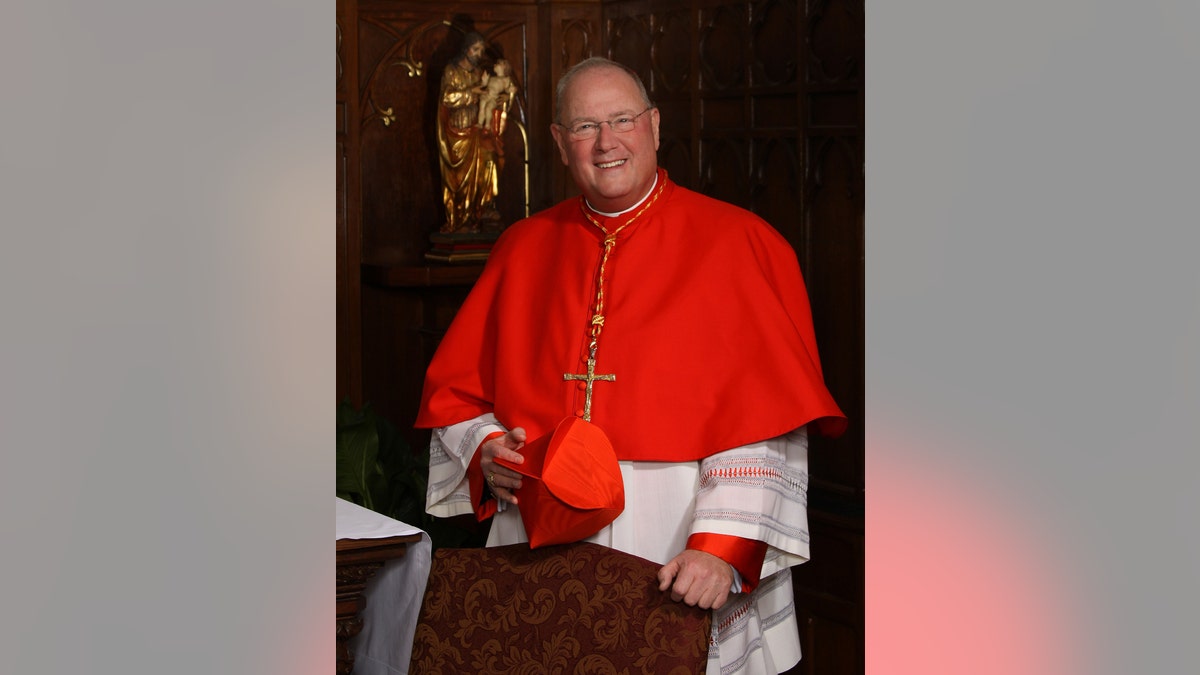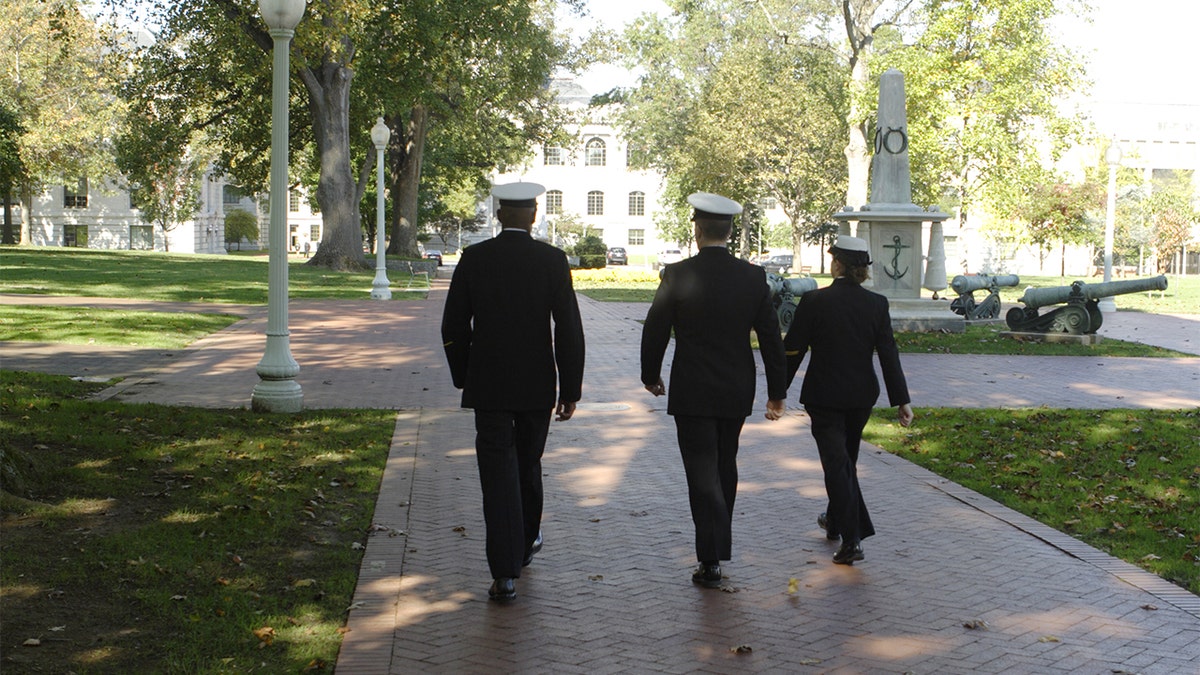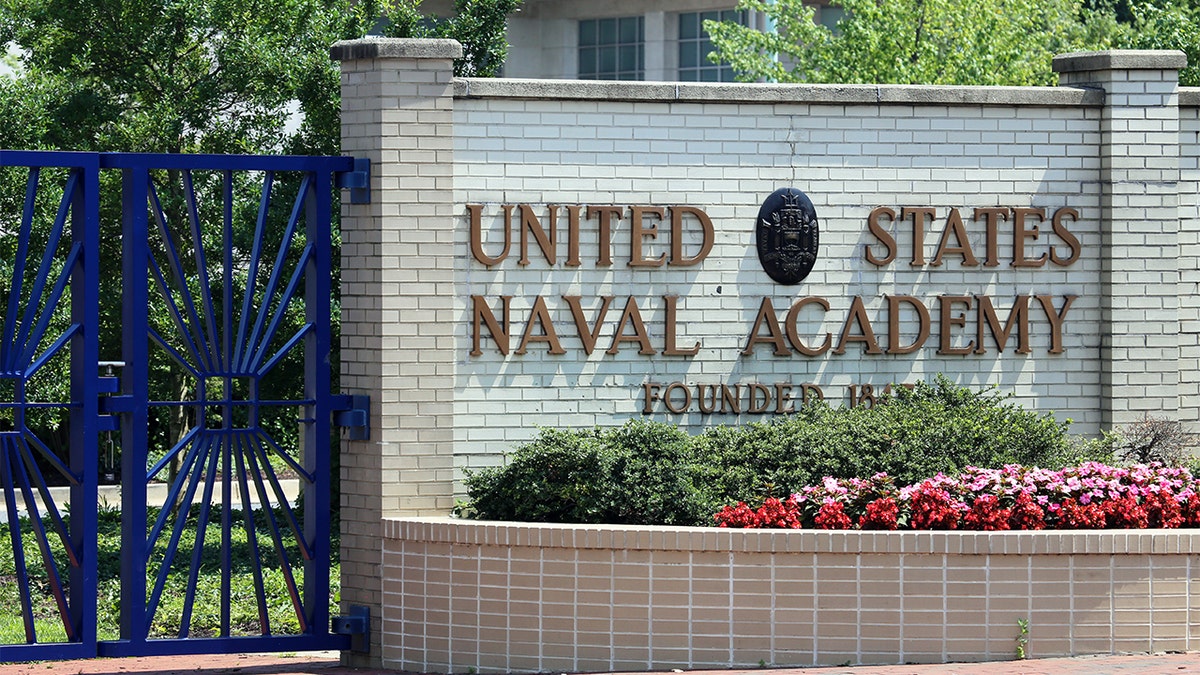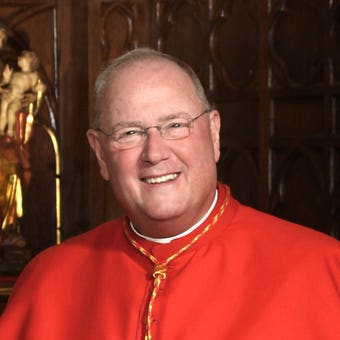Fox News Flash top headlines for November 9
Fox News Flash top headlines are here. Check out what's clicking on Foxnews.com.
Author's note: I recently had the honor of addressing the midshipmen at the U.S. Naval Academy in Annapolis. While I guess I was supposed to inspire them -- and hope I did a bit -- these young women and men inspired me. Of all the many speaking engagements I have enjoyed in my 13 years as Archbishop of New York, the one at the U.S. Naval Academy in Annapolis is near the top. Here's what I told the Catholic midshipmen and other members of the Academy’s Catholic community last month.
***
The first reason for my joy and honor at being here tonight is that I am the grateful and proud son of Robert Matthew Dolan, I am the grateful and proud son of Robert Matthew Dolan, who proudly served his country in the US Navy in the Pacific in 1943-1946, on the USS Cleveland, seeing action in war zones with such names as Guadalcanal, Iwo Jima, Okinawa, Manila, and Tokyo. While dad was rather humble about his service, as a member of what we now term, "the greatest generation," he cherished his identity and mission as a navy serviceman.
At times as a boy I could get him to explain his insignia, his diary, the maps, and his yearbook, and every once in a while would he recall with a moist eye and lumped throat, his friends who did not return. Allow me to imagine that dad is beaming, his heavenly reward enhanced, knowing his oldest son is now speaking at the "Vatican" of his beloved navy.
The second reason for my joy and honor at being here this evening is the memory of my esteemed predecessor as Archbishop of New York, John Joseph O’Connor. Yes, he of course treasured his identity as a disciple of Our Lord and Savior Jesus Christ, a faithful Catholic, a priest, a bishop; but the title be most relished was not "His Eminence," but "Chaplain," and "Admiral," and the years of service he most savored was as Chaplain here at the Naval Academy.

Timothy Dolan, former president of the United States Conference of Catholic Bishops, is the cardinal archbishop of New York.
A priest who served as his secretary while he was in New York often recounts that, on the busiest of days, with appointments stacked up in the parlor, anyone appearing on the doorsteps asking to "see the chaplain" was immediately let in, walking past the other people already waiting, as never would the cardinal forget those navy men and women.
John Cardinal O’Connor walked tall as Archbishop of New York. To this day, folks will stop me on the sidewalks of New York to recount stories of providential and grace - filled encounters with the cardinal. Cops will take off their caps to show me the cardinal’s picture inside, and widows will ask me to attend the funerals of their husbands, Navy veterans, who venerated His Eminence as their "chaplain."
Thus will you understand my deep gratitude for your gracious invitation to speak to you this evening at these hallowed acres.

Three midshipmen at the Naval Academy in Annapolis, Maryland (iStock)
And gratitude is precisely what I want to speak about this evening.
Gratitude . . . St. Augustine, perhaps the most towering intellectual of Western civilization, observed that gratitude is the first of all the virtues, the door to duty, character and faith; and that a lack of gratitude is the opening to vice, shallowness, selfishness, and a life without God, friends, or meaning.
When I left eighth grade at Holy Infant Grade School in Ballwin, Missouri, our pastor, Father Jeremiah L. Callahan, himself a U.S. Army Chaplain in the heat of World War II, whose brother, John, also a chaplain, had died when his war plane was shot down over enemy territory, told us: "You learned here in science class that the world reached maturity when it learned the earth was not the center of the universe; well, you learned a more important lesson in your religion class: neither are you the center of the universe. You were made for God, you were made for others."
That’s the root of the virtue of gratitude, the antidote to the selfishness, the narcissism, the sense of entitlement we see in pandemic proportion in today’s culture. As Jeremy Adams comments, "Encouraging people to be grateful, and to recognize what others have provided them through no merit of our own, is not about `guilt-tripping’ them. It is to encourage a particular way of existing in the world. Gratitude acknowledges the plenitude of goodness that surrounds us every moment of everyday in millions of small acts of people we do not know."

Annapolis, Md., The United States Naval Academy (iStock)
Or, as the philosopher David Hume observes, "Of all the crimes that human creatures are capable of committing, the most horrid and unnatural is ingratitude."
Jeremy Adams again: "My real concern is that gratitude may no longer be part of America. We seem to believe that our blessings -- technology, wealth, comforts, bountiful freedom, and opportunities unrivaled in human history - - are owed to us. Thus, no sense to be grateful."
Not for my dad; not for John Cardinal O’Connor, not for . . . the U.S. Navy cadets at Annapolis. I have a strong hunch you are grateful people . . . or why else would you be here?
Gratitude allows us to hold close what we have received, how unique human life is because of folks and selfless deeds of the past… moms and dads, grandparents and family, churches, teachers, and coaches, friends and neighbors . . . and, the Lord.
Recognizing what others have provided us is to inspire a way a living, where selflessness comes before selfishness, where others of the past and the now, including the Other, almighty God, have a hidden claim on our allegiance, where we act in hope that the next generation will look back upon us with the same whispered appreciation we foster for those, like Dad and Cardinal O’Connor, who have walked before us.
Did you know that Greek word "Eucharist" means thanksgiving? People centered on the Eucharist will always be grateful.
You know the first words children learn? "Mine", "no", and "more." No trouble repeating those words: "mine," "no," "more." The words they rarely say unless prodded by mom and dad are, "thank you!" I’m afraid we’re all a bit like that.
Central to our lives as Catholics is the Eucharist, the Bread of Life, the Real Presence of Jesus in the gift of the Mass and Holy Communion.
Did you know that Greek word "Eucharist" means thanksgiving? People centered on the Eucharist will always be grateful. Every Sunday finds them at Mass, heads bowed, whispering prayers, on their knees, the first day of the week, praising their gracious God for His countless gifts.
Admiral – Chaplain – Father – Cardinal John O’Connor often recalled that the most memorable and moving Masses he offered in his five – and – a half decades as a priest were not with the Pope at St. Peter’s Basilica in the Vatican, or in St. Patrick’s Cathedral on Fifth avenue, but with the devoted men and women of the US Navy; not on marble altars covered with lace and golden candlesticks, but on the decks of ships, the hangers of aircraft, the sick bays of destroyers, or the sands of places like Iwo Jima.
I believe I am right in suspecting that men and women in uniform have an innate, inbred sense of gratitude, that I am on to something when I propose that the words of Jesus, "Greater love than this no one has than to lay down his life for another," as He Himself did on the cross, renewed at every Eucharist, are part of the DNA of one whose career is summed up in one word, "the service?"
My apprehensions over the lack of gratitude festering in our culture of entitlement is that, unless we rediscover a sense of gratitude, we will eventually conclude that life isn’t all that joyful, meaningful, and sacred, we will not believe the world is, to borrow a phrase from Ernest Hemingway "a fine place and worth fighting for."
As Christians, we are exhorted to love one another, to be people of fidelity toward God, to forgive those who offend us, to cherish and look out for those who need us, who are vulnerable, who need defending. All those noble promptings are closely allied to gratitude, for our families and country, for a God who sacrificed the life of His only begotten Son so that we might live forever. "Unless a grain of wheat fall into the earth and die, it remains just a seed; if it dies, it brings new life."
On the other hand, if all there is to life is to get "more" of what you got coming to you; that the world, your country, your so-called "friends" only exist to fulfill your needs; that everything else exists to satisfy you, well, why exhibit gratitude? Why thank somebody, God or others, who are only supplying you with what you deserve anyway. We turn on its head the mandate of another navy man, John F. Kennedy, as we twist them to mean, "Ask not what you can do for your country, but what your country can do for you!"
Tragically, such a sense of ingratitude will eliminate values essential to a civilized society, values such as duty, honor, valor, integrity, service, and sacrifice.
I guess, in a way, gratitude is a traditional value. It allows us to appreciate how things are, what has already been given, and how blessed life is because of people and goodness we have only inherited, not earned. People of thanksgiving believe that all these blessings must be "conserved" for those who follow us.
CLICK HERE TO GET THE OPINION NEWSLETTER
Because it’s in the Bible, I’d believe it anyway. But, experience has taught me that I need not take what St. Paul tells us in his second letter to Corinthians just on faith, because experience has also demonstrated its truth: "We do not fix our gaze on what is seen but on what is unseen. What is seen is transitory, while what is unseen lasts forever."
This means that the invisible in life is actually the most real: faith, hope, charity; character, love, loyalty; duty, responsibility, reliability; patriotism, fidelity, honor. One can’t analyze these realities under a microscope, in a lab, on an MRI. They are unseen, but still the most genuine realities around.
Such a trust in the power of the unseen is nigh to impossible for anyone who feels that meaning can only come from what we can spend, use, buy, gain, and get ahead with, all for ourselves, forget about God and others. Why be grateful for what I am entitled to? Who needs gratitude?
Well, I do; civilization sure does; a culture of life and love certainly does; our country does. The ability to say thanks is itself a sublime gift.
In the movie "Joe vs. the Volcano," Tom Hanks stumbles through a life of boredom, selfishness, meaninglessness. Then he’s diagnosed with a fatal disease, and is offered a chance to die as a hero on some island in the far Pacific. At the end of the film, all alone, raising his hands to heaven, he whispers, "Dear God, whose name I don’t even know -- thank you for my life."
CLICK HERE TO GET THE FOX NEWS APP
Well, we do know his name: Jesus Christ, whom we receive at Mass.
My dad knew the names of that Pacific island: Iwo Jima, Guadalcanal, Midway, Pearl Harbor.
Cardinal O’Connor knew the names: Hanoi, The Gulf of Tonkin, Saigon, the Mekong Delta.
You may not see it listed among the qualifications for service in the U.S. Navy, but it’s at the top of the litany: Gratitude.









































